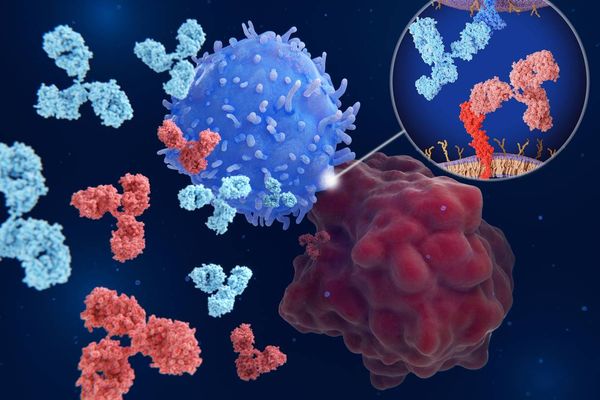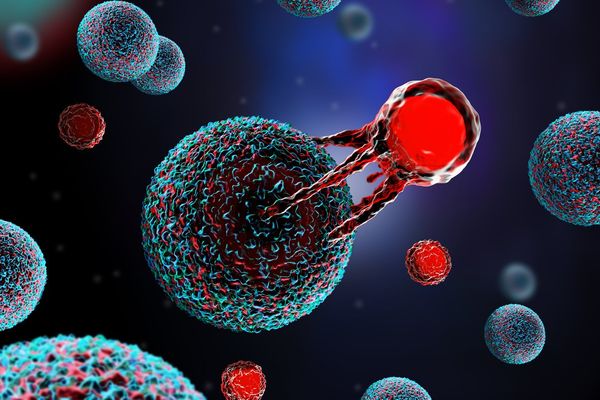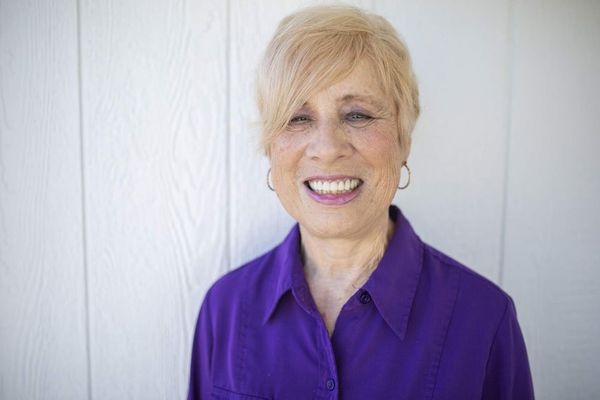From the Desk of Christine Verini
Menopause is a traditional marker of midlife, a natural process most women experience during their 50s. Some women welcome menopause and the end of their reproductive years and menstrual bleeding, while others struggle with the mental and physical symptoms that may accompany this stage.
For women dealing with cancer, menopause may come even sooner. Some cancer treatments can cause the ovaries to stop working or be removed and bring about early menopause. This can be really difficult for women for a number of reasons.
First, for women already dealing with a cancer diagnosis and cancer treatment, hot flashes and night sweats are now another part of their daily reality. These menopause symptoms can range from mildly unpleasant to intense and debilitating. Research also shows that younger women have more intense menopause symptoms than older women, resulting in many younger cancer patients struggling with the side effects of cancer treatment along with hot flashes, vaginal dryness and mental health changes.
Although symptoms usually come on gradually for women going through natural menopause, women experiencing menopause as a result of cancer may end up with immediate symptoms. In fact, women I've spoken with have actually shared that they start having hot flashes by the time they get home after surgery.
Another issue that comes up for women of childbearing age is children. They may not have had biological children yet or, if they have children, they may have wanted the option to continue growing their family. If their treatment has resulted in menopause — whether medically-induced or through surgical removal of the ovaries — the option of biological children may be taken away from them.
They will have to come to terms with this new reality that they are unprepared for — along with dealing with the psychological struggles that come with a cancer diagnosis and treatment. Losing the ability to bear children after developing cancer can feel exceptionally cruel.
Finally, women dealing with cancer already feel alone in their journey. Their friends are continuing on with their lives while they are busy getting scans and bloodwork, scheduling pre-op appointments and surgery, going for weekly infusions or taking daily pills, all while keeping their kids' schedules going and staying on top of their own work, whether it's housework, office work or both. And now, on top of this, they are experiencing something their friends may have another 10 to 20 years to address — menopausal issues.
At HealthyWomen, we want to help you understand what these changes mean and help you in your conversations with your health care provider. Whether you've already experienced menopause or are starting cancer treatment and are concerned about going into early menopause, it can be helpful to have all of the information you need so you can make informed decisions in partnership with your clinician.
Here are some important facts to help you navigate early menopause:
- Hormone therapy is an option to help alleviate menopausal symptoms, and it can have significant benefits for younger women. Estrogen and progesterone are protective against conditions like osteoporosis, heart disease and cognitive ability. A sudden loss of these hormones due to cancer treatment can lead to such conditions developing in younger women. Look for a North American Menopause Society–certified practitioner to learn if you are a good candidate for hormone therapy, and check with your oncologist to make sure hormone therapy is right for you.
- If you want to discuss options for preserving your fertility before starting cancer treatment, talk to your health care provider and look for an oncofertility specialist who works with cancer patients who hope to become pregnant.
- Don't hesitate to see a mental health professional if you're feeling depressed or anxious, which are common perimenopausal and menopausal symptoms.
This is not to say that every woman will have negative feelings about this new stage of life. Surviving cancer and being alive to enjoy more time with family and friends may make early menopause feel like a minor annoyance compared to other outcomes. Everyone will respond differently, and all responses should be respected and understood.
We all know life doesn't stop when a woman has cancer or goes through menopause. Treating the whole person during these stages can help more women live a fulfilling life despite cancer. Although some women dread menopause, others find it provides a sense of freedom and relief about the end of their reproductive years. Knowing the best way to manage early menopause can make this passage easier.
To learn more about menopause and how to get your questions answered, register for our upcoming virtual " No Pause in Menopause Roundtable" series taking place Wednesdays starting in October.
With Support from Astellas






